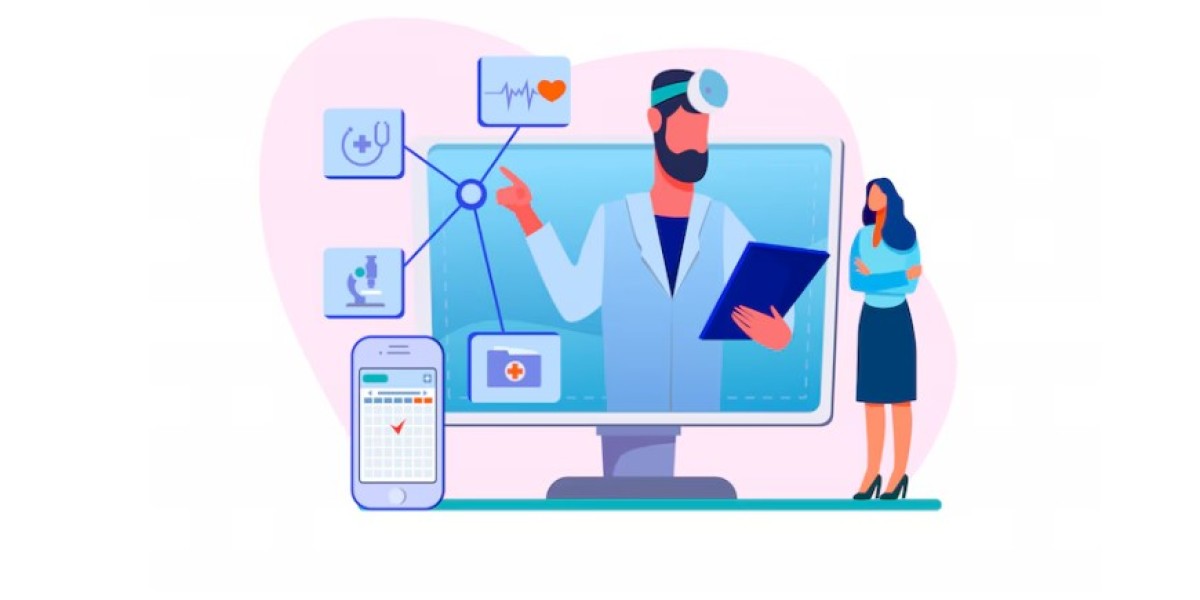Unlocking the Power of Data Analytics in Healthcare
In today's data-driven world, the healthcare industry stands to gain immensely from the strategic use of data analytics. Data analytics in healthcare is revolutionizing how medical professionals diagnose diseases, manage patient care, and optimize operational efficiencies. By harnessing vast amounts of data, healthcare providers can make informed decisions that enhance patient outcomes, reduce costs, and streamline processes. This article delves into the significance of data analytics in healthcare, exploring its applications, benefits, challenges, and future trends shaping the industry.
Understanding Data Analytics in Healthcare
Data analytics involves the systematic computational analysis of data to uncover patterns, trends, and insights. In healthcare, this encompasses a wide range of activities, from analyzing patient records to predicting disease outbreaks. The primary goal is to transform raw data into actionable information that can improve patient care, enhance operational efficiency, and support strategic decision-making.
Key Applications of Data Analytics in Healthcare
Predictive Analytics for Patient Care: Predictive analytics uses historical data and machine learning algorithms to forecast future health events. For instance, predicting patient readmissions allows hospitals to implement preventive measures, thereby improving patient outcomes and reducing costs.
Personalized Medicine: By analyzing genetic information, lifestyle data, and medical history, data analytics enables the customization of treatment plans tailored to individual patients. This personalized approach enhances the effectiveness of treatments and minimizes adverse effects.
Operational Efficiency: Data analytics helps healthcare organizations optimize their operations by identifying inefficiencies in workflows, managing supply chains, and improving resource allocation. For example, analyzing appointment data can help reduce patient wait times and enhance the scheduling process.
Disease Surveillance and Outbreak Prediction: Analyzing data from various sources, including social media, electronic health records, and environmental sensors, allows for the early detection and prediction of disease outbreaks. This proactive approach is crucial for timely interventions and containment efforts.
Clinical Decision Support Systems (CDSS): CDSS leverage data analytics to provide healthcare professionals with evidence-based recommendations at the point of care. These systems assist in diagnosing conditions, selecting appropriate treatments, and avoiding medical errors.
Cost Management and Reduction: By analyzing billing data, treatment costs, and insurance claims, data analytics identifies areas where expenses can be minimized without compromising quality of care. This leads to more sustainable healthcare practices and better financial management.
Benefits of Data Analytics in Healthcare
Improved Patient Outcomes: Data-driven insights enable more accurate diagnoses, personalized treatments, and proactive care management, all of which contribute to better health outcomes for patients.
Enhanced Operational Efficiency: Streamlining processes and optimizing resource allocation reduces operational costs and improves the overall efficiency of healthcare facilities.
Cost Reduction: Identifying and eliminating inefficiencies helps healthcare organizations save money, making healthcare more affordable for patients and sustainable for providers.
Informed Decision-Making: Access to comprehensive and accurate data empowers healthcare leaders to make informed strategic decisions that align with organizational goals and patient needs.
Early Detection and Prevention: Predictive analytics facilitates the early detection of diseases, allowing for timely interventions that can prevent the progression of illnesses and reduce the burden on healthcare systems.
Enhanced Patient Engagement: Data analytics tools provide patients with access to their health information and insights, promoting active participation in their own care and fostering better patient-provider relationships.
Challenges in Implementing Data Analytics in Healthcare
Data Privacy and Security: Protecting sensitive patient information is paramount. Healthcare organizations must ensure compliance with regulations like HIPAA and implement robust security measures to prevent data breaches.
Data Integration: Integrating data from disparate sources, such as electronic health records (EHRs), wearable devices, and insurance databases, can be complex. Ensuring interoperability is essential for comprehensive data analysis.
Data Quality and Accuracy: The effectiveness of data analytics depends on the quality and accuracy of the data. Incomplete or erroneous data can lead to misleading insights and poor decision-making.
Skill Gaps: Implementing data analytics requires specialized skills in data science, machine learning, and healthcare informatics. Healthcare organizations may face challenges in recruiting and retaining talent with these expertise.
Cost of Implementation: Investing in data analytics infrastructure, tools, and training can be costly. Healthcare organizations must weigh the initial investment against the long-term benefits.
Resistance to Change: Adopting data-driven approaches may encounter resistance from staff accustomed to traditional methods. Effective change management strategies are necessary to facilitate smooth transitions.
Future Trends in Data Analytics in Healthcare
Artificial Intelligence and Machine Learning: The integration of AI and machine learning with data analytics will enhance predictive capabilities, automate routine tasks, and provide deeper insights into complex health data.
Real-Time Analytics: The demand for real-time data analysis is increasing, enabling immediate responses to critical health events and improving the timeliness of interventions.
Blockchain for Data Security: Blockchain technology offers a secure and transparent way to manage healthcare data, ensuring data integrity and facilitating secure sharing among authorized parties.
Advanced Visualization Tools: Enhanced data visualization tools will make complex data more accessible and understandable, aiding healthcare professionals in interpreting and utilizing data effectively.
Integration with IoT Devices: The proliferation of Internet of Things (IoT) devices in healthcare will generate vast amounts of real-time data, providing valuable insights into patient health and enabling continuous monitoring.
Patient-Centric Analytics: Future data analytics will focus more on patient-centric approaches, integrating patient feedback and preferences to tailor care plans and improve satisfaction.
Genomic Data Analytics: Analyzing genomic data will play a crucial role in advancing personalized medicine, enabling the development of targeted therapies based on an individual’s genetic makeup.
Conclusion
Data analytics in healthcare is transforming the industry by enabling more informed decision-making, enhancing patient care, and optimizing operational efficiencies. The ability to analyze vast amounts of data provides healthcare providers with valuable insights that drive improvements in diagnostics, treatment personalization, and preventive care. However, the successful implementation of data analytics requires addressing challenges related to data privacy, integration, quality, and skill gaps.
As technology continues to advance, the role of data analytics in healthcare will become increasingly integral to delivering high-quality, patient-centered care. Embracing data analytics not only improves health outcomes but also contributes to the sustainability and efficiency of healthcare systems. By leveraging the power of data, the healthcare industry can navigate the complexities of modern medicine and achieve a future where every patient receives personalized and effective care.
Frequently Asked Questions (FAQ)
1. What is data analytics in healthcare?
Data analytics in healthcare involves the systematic analysis of healthcare data to uncover patterns, trends, and insights. This process helps healthcare providers make informed decisions, improve patient care, optimize operations, and reduce costs.
2. How does data analytics improve patient care?
Data analytics enhances patient care by enabling accurate diagnoses, personalized treatment plans, proactive health management, and timely interventions. It helps healthcare providers understand patient needs better and deliver more effective and efficient care.
3. What are the key components of data analytics in healthcare?
Key components include data collection and integration, data storage and management, data analysis and modeling, visualization and reporting, and the implementation of insights into clinical practice.
4. What types of data are used in healthcare analytics?
Healthcare analytics utilizes a variety of data types, including electronic health records (EHRs), medical imaging, genomic data, patient demographics, insurance claims, wearable device data, and patient feedback.
5. What are the main benefits of using data analytics in healthcare?
Benefits include improved diagnostic accuracy, enhanced operational efficiency, cost reduction, better patient outcomes, informed decision-making, early disease detection, and increased patient engagement.
6. What challenges do healthcare organizations face when implementing data analytics?
Challenges include ensuring data privacy and security, integrating data from multiple sources, maintaining data quality and accuracy, addressing skill gaps, managing the cost of implementation, and overcoming resistance to change.
7. How can healthcare organizations ensure data privacy and security in analytics?
Organizations can ensure data privacy and security by implementing robust encryption, secure access controls, compliance with regulations like HIPAA and GDPR, regular security audits, and training staff on data protection best practices.
8. What role does machine learning play in healthcare data analytics?
Machine learning enhances healthcare data analytics by enabling the development of predictive models, automating data analysis, identifying complex patterns, and providing actionable insights that support clinical decision-making and personalized medicine.
9. How does data analytics contribute to cost reduction in healthcare?
Data analytics identifies inefficiencies, reduces unnecessary procedures, optimizes resource allocation, and streamlines operations, all of which contribute to significant cost savings for healthcare organizations.
10. What is the future of data analytics in healthcare?
The future of data analytics in healthcare includes advancements in artificial intelligence and machine learning, real-time analytics, blockchain for data security, enhanced visualization tools, integration with IoT devices, patient-centric analytics, and genomic data analysis. These trends will further enhance the capabilities and impact of data analytics in improving healthcare outcomes.










